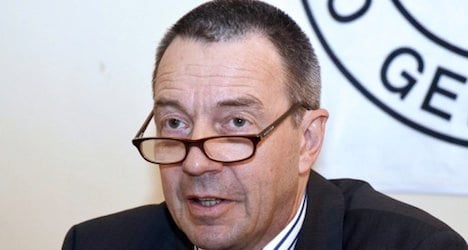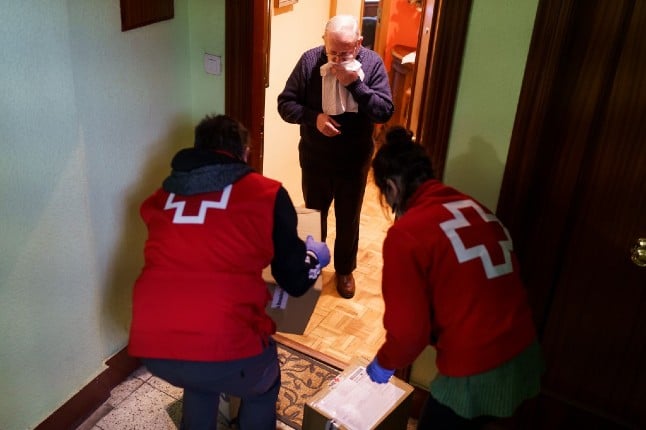"As much as we appreciate the whole political power and energy going into the really big threat of the use of chemical weapons (in Syria) . . . we would like to see similar kinds of efforts and energy deployed in order to create circumstances in which humanitarian workers can work," the International Committee of the Red Cross (ICRC) president told reporters in Geneva.
He said he hoped US Secretary of State John Kerry and Russian Foreign Minister Sergei Lavrov, who are set to meet in the Swiss city on Thursday to seek a diplomatic solution to the Syrian chemical weapons crisis, would also discuss how to improve the deteriorating humanitarian situation.
"We would hope that this is also part of the discussions, not only tomorrow, but of the broader international effort in Syria," he said.
His comments came as world diplomats rushed to avert threatened US-led strikes against President Bashar al-Assad's regime over its suspected use of sarin gas against its own people last month.
Maurer hailed these efforts, but voiced concern that "the attention on the victims of the conflict . . . is a little bit lost in the public perception," adding that the situation on the ground was getting worse.
He said humanitarian workers lacked access to some of the most hard-hit parts of Syria, including the site near Damascus where Washington claims 1,400 people were killed in a chemical attack on August 21st.
"I would appreciate if the key actors who have an influence on all sides and parties in the Syrian conflict would use their influence and their channels of communication, their diplomatic and political influence . . . so that humanitarian actors on the ground can do the job they are supposed to do," he said.
Maurer pointed out that 22 Syrian Red Crescent workers had been killed since the conflict began in March 2011 — "one of the highest numbers of humanitarian workers killed carrying out their functions in an armed conflict since we started keeping statistics."
Maurer said it was particularly difficult to bring in medical aid, adding that helping wounded fighters especially was "seen by both sides as a military support of the other side and is not respected as a basic humanitarian provision."
Although the ICRC has significantly scaled up its efforts in Syria recently, the organisation could double its activities in the country and still not come close to meeting the overwhelming needs in a conflict that has already killed more than 100,000 people and forced more than two million to flee the country, he said.
"There remains a huge discrepancy between what we are able to do and what we would like to do," Maurer said.
As for whether he would meet Kerry and Lavrov in Geneva, the ICRC chief said: "That is not on the agenda now, but I'm here."
RED CROSS
Syria needs humanitarian focus: Red Cross chief
Red Cross head Peter Maurer on Wednesday urged the international community to do as much to improve the humanitarian situation in Syria as it is doing to fight the chemical weapons threat in the country.
Published: 12 September 2013 09:06 CEST

ICRC President Peter Maurer. Photo: Junior D. Kannah/AFP
Url copied to clipboard!


 Please whitelist us to continue reading.
Please whitelist us to continue reading.
Member comments